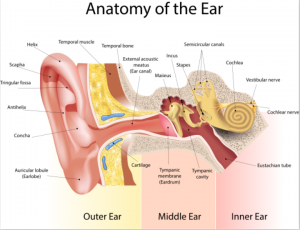VESTIBULAR REHABILITATION
Did you know that dizziness affects around 15% of all people. Dysfunction to the vestibular system is one of the more common reasons for dizziness.
Vestibular rehabilitation is an effective way of reducing symptoms of vertigo, dizziness and unsteadiness that results from a dysfunction in the balance system.
Balance range from mild vertigo to disabling symptoms and affect everyone slightly differently.
Our experienced physiotherapists assist with hands on vestibular rehabilitation.
Physica offers small group balance classes to help maintain and improve your balance and reduce falls.
The good news is that vestibular and balance physiotherapy is an affective and proven method for restoring a persons quality of life.
Several members of our team have a special interest and additonal training in vestibular rehabilitation. We often work in a team
with some of the the leading neurologists in Melbourne to provide optimal vestibular care.
Some of the signs and symptoms of vertigo or dizziness are:
• Dizziness related to head movement • Unsteadiness
• Imbalance
• An increased falls risk
The Balance system is composed of the inner ear eye and specific areas of your brain.

Information is relayed between these areas to maintain an upright posture and maintain gaze stability whilst moving your head. When there is a problem in any of these three components it can lead to symptoms of dizziness.
ABOUT VESTIBULAR REHABILITATION
Vestibular rehabilitation can involve a combination of manual treatment techniques and exercise therapy.
Vestibular physiotherapy is considered to be the leading method of treating conditions of the vestibular system.
Our Physiotherapists will undertake a specific vestibular assessment and provide an accurate treatment plan for all sessions.
CONDITIONS THAT ARE TREATED BY VESTIBULAR REHABILITATION:
• BPPV
• Vestibular neuronitis/labyrinthitis
• Post acoustic neuroma removal
• Vestibular migraine
• Ototoxity
• Age related balance dysfunction and falls risk
• Balance dysfunction resulting from MS,Stroke, Parkinson's disease
• Post concussion Syndrome
BY UNDERGOING VESTIBULAR REHABILITATION YOU CAN EXPECT TO :
• Reduce vertigo and head movement related dizziness
• Improve balance
• Improve steadiness when walking • Reduce the risk of falls
The impact that dizziness can have on your day to day function can vary from mildly annoying to completely debilitating.Dizziness and vestibular symptoms whilst common can affect all people slightly differently. For some the impact can leave them unable to function in the social and work environments.
BALANCE CONDITIONS
Vestibular Neuronitis
A viral infection of the inner ear.
Acoustic Neuroma
A benign tumour which grows along the pathway of the vestibular nerve.
Meniere's Syndrome
Disorder of the inner ear function characterised by hearing loss, tinnitus and vertigo
Presents in attacks: initial sensation of fullness in the ear, sometimes a reduction in hearing and tinnitus followed by vertigo, nystagmus and vomiting after a few minutes. The sensation of postural unsteadiness can persist for days to weeks.
Benign Paroxysmal Positional Vertigo (BPPV)
BBPV is a disorder where floating debris causes aleterd information to the balance centre of the inner ear.
To make a booking to see one of our specially training vestibular Physiotherapists use the online booking tool in the menu bar.
